The Hillsborough disaster: Telling Anne Williams’s story
‘Anne’ is part of a long and honourable history in British TV drama of exposing and sometimes even overturning heinous miscarriages of justice, writes James Rampton

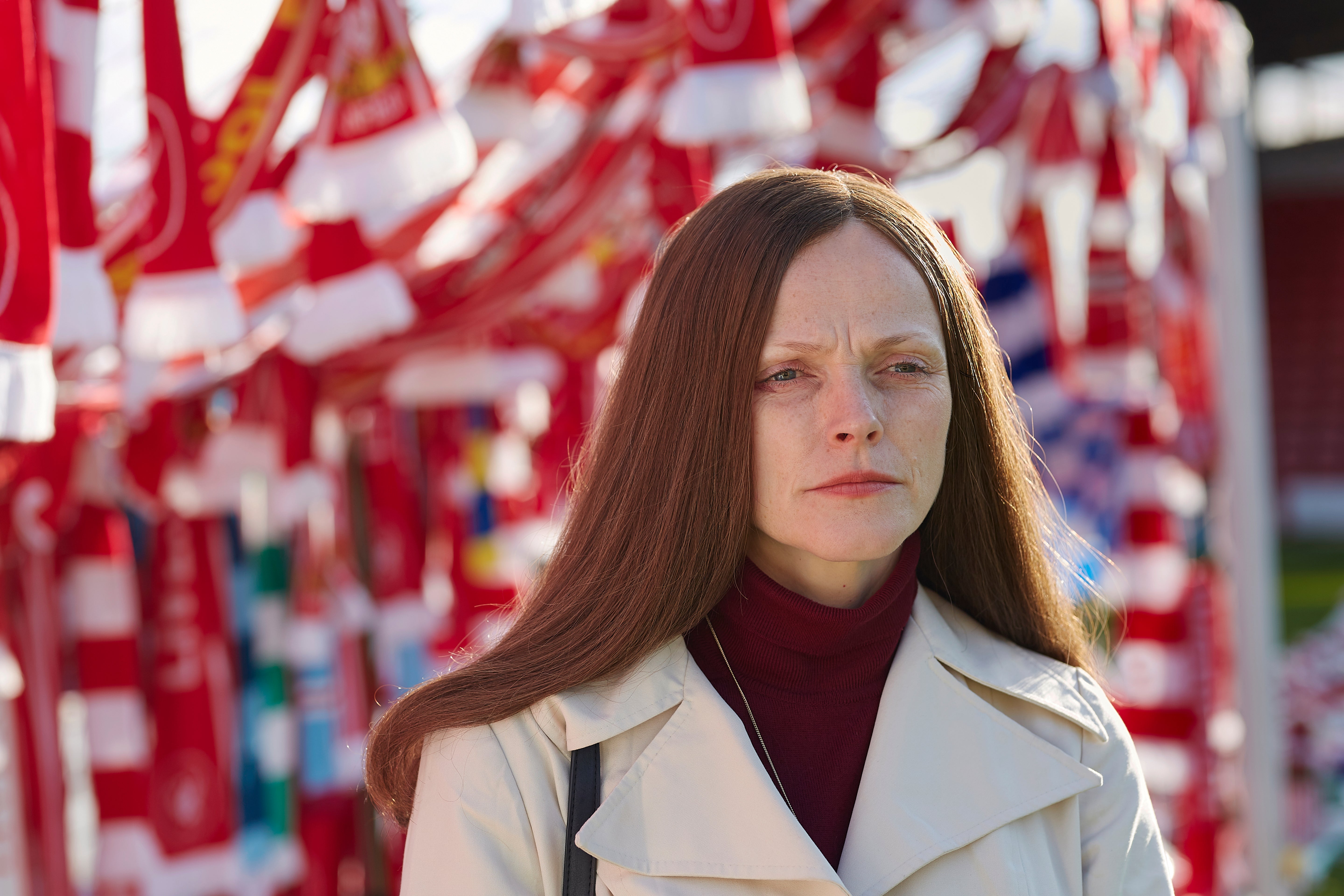
For a long time, Sara Williams’s maxim had always been: just say no. Over the years, many TV producers had approached her, asking for permission to tell the story of her mother, Anne, but Williams had always turned them down flat.
Anne had lost her 15-year-old son Kevin at the Hillsborough disaster in 1989 and had then spent years campaigning for justice for the victims. She was relentless in her desire to uncover what really happened at the FA Cup semi-final between Liverpool and Nottingham Forest on 15 April 1989. The tragic events of that day claimed a total of 97 lives.
She was driven by the discovery that Kevin could still have been here today. He was one of 41 victims who might have survived with basic first aid on the day.
For more than two decades, Anne and other victims’ relatives strove tirelessly to demonstrate that their loved ones had in fact been unlawfully killed at Hillsborough. The pressure of her ceaseless fight for justice caused Anne to split from her husband, Steve, and may well have worsened her already ailing health, but she never gave up.
She was instrumental in the struggle to expose the multiple official cover-ups and misrepresentations in certain red tops. Anne also campaigned to have the coroner’s original 1991 verdict of accidental death quashed. She traced witnesses who had attempted to revive Kevin on the pitch, discovered new medical opinions and lobbied ministers hard for fresh inquests.
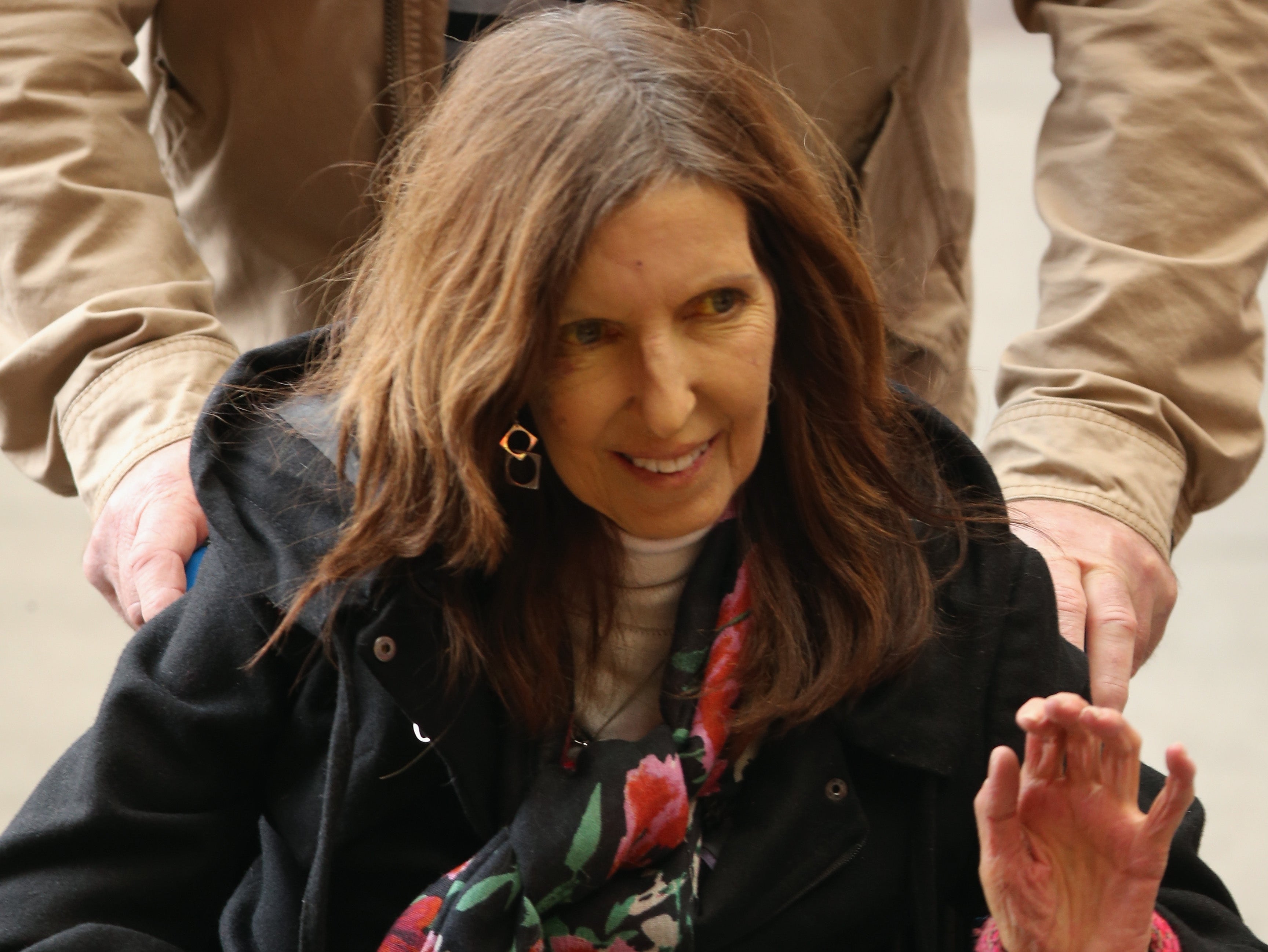
Partly as a result of Anne and other campaigners’ efforts, in 2009 the government demanded that all documents pertaining to Hillsborough should be published. These disclosed that more than 200 police statements had been altered.
In 2014, a new inquest, which became the longest case ever heard by a British jury, was finally held in Warrington. Two years later, the jury found that the victims had been “unlawfully killed.” They also concluded that the conduct of the Liverpool fans had not contributed to the fatal events. Rather, the inquest said, catastrophic errors by individuals and the authorities had led to people’s deaths.
“My mum always said that she could have handled losing Kevin,” says Williams. “She’d still have grieved and she still would have been devastated. But it was the cover-up that did it more for her and probably for the rest of the families, too.”
You can never remind people enough about what really happened on that day and in the years that followed. I hope my mum’s story inspires others who are also facing injustice
Sadly, Anne died of cancer in 2013, three years before the official verdict of unlawful killing was handed down. It all makes for a truly remarkable story. But despite the producers’ persistent requests to dramatise Anne’s extraordinary campaign, Williams had always rejected them. Until now.
Williams finally gave her blessing to Anne, a powerful new four-part ITV drama scripted by Kevin Sampson, an author who wrote the book Hillsborough Voices and was there himself on that terrible day. The series is part of a long and honourable history in British TV drama of exposing, and sometimes even overturning, heinous miscarriages of justice.
“A few people had shown interest in making a TV drama, and I always said no,” Williams told me. “It wasn’t the right time. But Kevin Sampson came up to see me and explained everything. He sent me a few scenes he had written and said, ‘just give me a chance and read them. This is how I’m going to do it.’ That’s when I finally agreed to it. I was fully consulted all of the way through.
“I wanted people to see how things had been covered up and what Hillsborough had actually done to families. In our case, it wasn’t just about losing Kevin. It had a wider impact and ended a marriage. The campaigning became like a full-time job to my mum.”
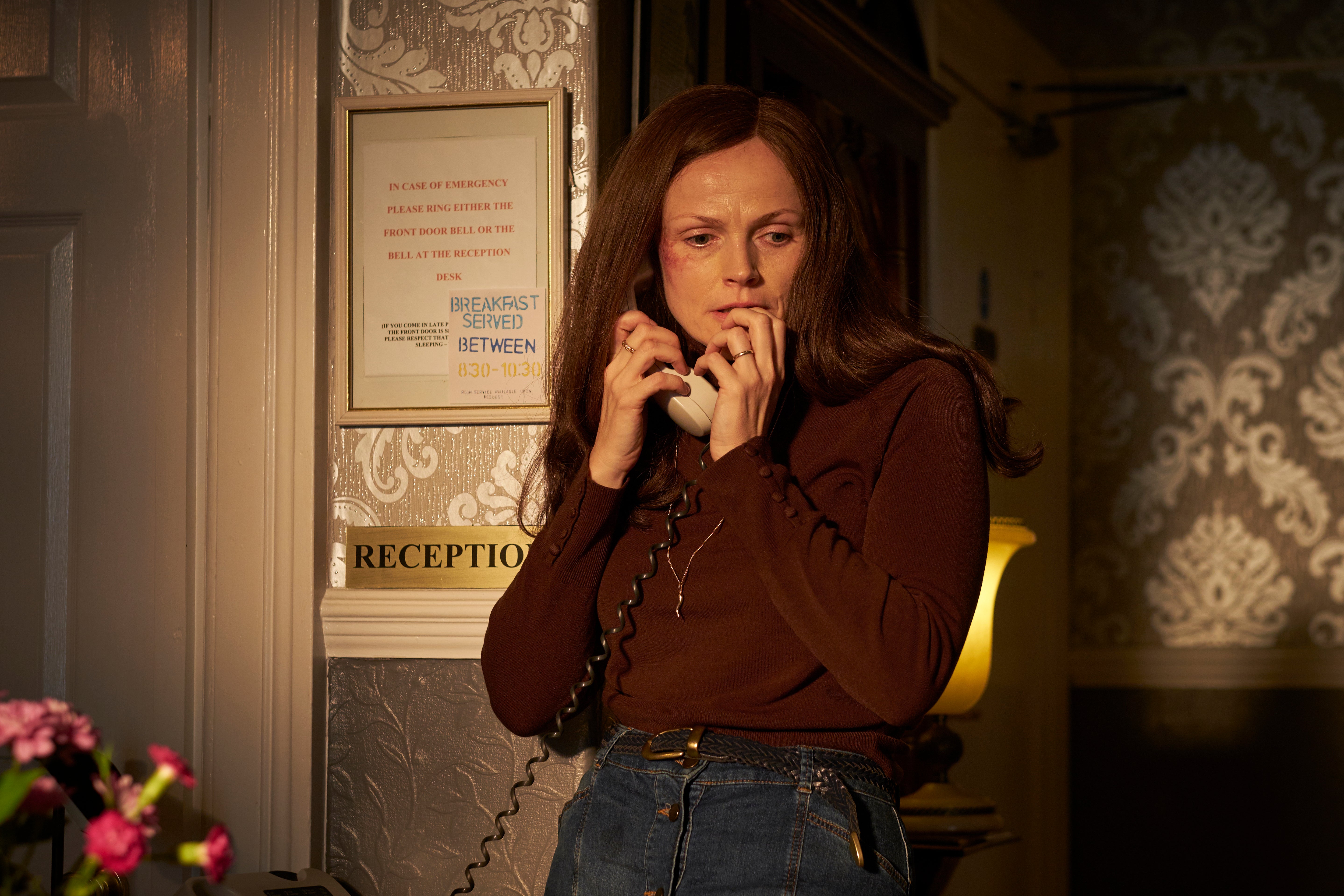
Williams underlines how anxious she is that the story of Hillsborough should not be forgotten, telling me that Kevin would have been 49 in 2022 and that she believes there are young people today who don’t know about the story of Hillsborough, while there are others who still believe the lies.
“You can never remind people enough about what really happened on that day and in the years that followed,” she says. “I hope my mum’s story inspires others who are also facing injustice.”
Williams trusts, then, that the series might prove a spur for others battling to right a miscarriage of justice. That has long been the role of such TV films. Anne, which stars Maxine Peake in the lead role, is just the latest in a series of highly significant TV dramas down the years that have helped change our view of many prominent injustices.
The ITV drama Who Bombed Birmingham?, broadcast in 1990, is a prime example. It is credited with helping the campaign to release the six Irishmen who had been wrongfully convicted of the IRA bombings of two Birmingham pubs in 1974.
Prompted in part by the drama, in 1991 the convictions of the “Birmingham Six” were quashed on the grounds of police fabrication of evidence, the suppression of evidence, and the unreliability of the scientific evidence presented at their 1975 trial.
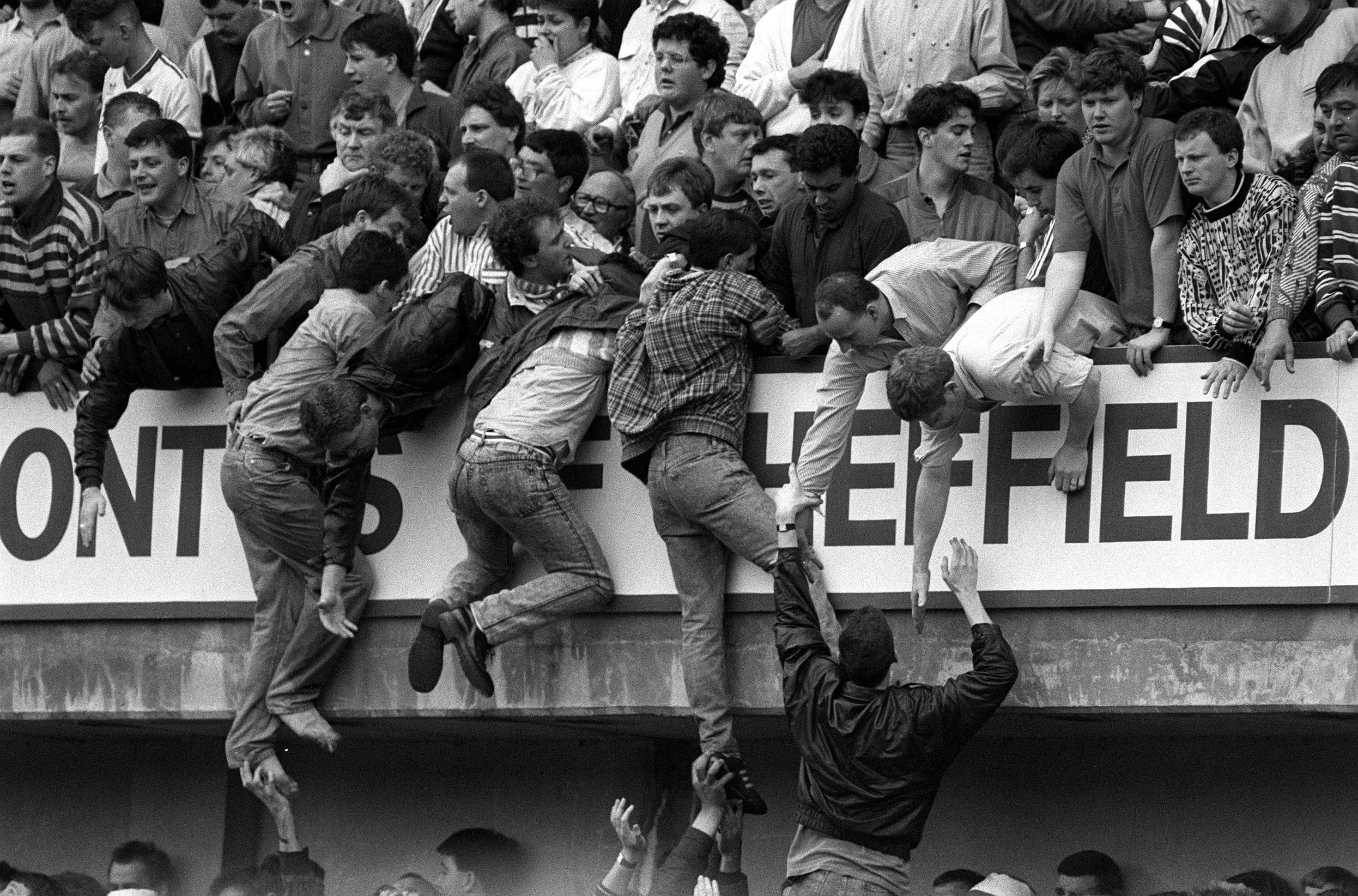
Since then, such influential dramas as Jimmy McGovern’s landmark 1996 ITV film Hillsborough, the Bafta-winning 1999 ITV drama The Murder of Stephen Lawrence, produced by Mark Redhead, two 2002 dramas about Bloody Sunday, Channel 4’s Sunday (another McGovern script) and ITV’s Bloody Sunday (another Redhead production), ITV’s 2014 series The Lost Honour of Christopher Jefferies, about the vilification of an innocent suspect in the murder of Joanna Yeates, and Small Axe: Mangrove, Steve McQueen’s 2020 BBC One film about the racially motivated 1970 prosecution of the “Mangrove Nine”, have played an enormous role in bringing manifold miscarriages of justice to public attention.
This autumn, Stephen, also executive-produced by Redhead, was broadcast on ITV. Still available on the ITV Player, the drama underscores the multiple injustices suffered by Doreen and Neville Lawrence in the wake of the infamous racist murder of their son Stephen in 1993.
Redhead, who has also produced such strong work as BBC One’s 2004 series In Denial of Murder, about the unsafe conviction of Stephen Downing for the killing of Wendy Sewell in 1973, says: “there is injustice in the world and things go wrong in the world. Our instinct is to try and draw attention to those things, and question the established understanding of them. That’s been the responsibility of journalists and artists down the ages. There is a great tradition of this kind of drama in this country. Historically, it has been something we have always embraced.”
It’s almost unprecedented in British legal history to have inquest verdicts overturned from accidental death to unlawful killing. That’s absolutely huge
These films also represent an invaluable corrective to the government’s constant hype about how we are basking in the sunny uplands. Redhead continues, “I do worry that if we have a creeping culture of boosterism, which says that everything’s great when everyone knows it isn’t, then that corrodes our faith in the system.”
Can “mere” TV dramas really make a difference, however? “Yes,” says Redhead. “Who Bombed Birmingham? definitely made a difference. It is one of the few examples where you can say categorically it had a direct impact.”
Julia Stannard, the producer of Anne, which starts at 9pm on ITV on Sunday 2 January, also believes that TV dramas can change the way we look at appalling miscarriages of justice. “Jimmy McGovern’s 1996 Hillsborough is one of the most important pieces of drama ever made in terms of how it changed the public perception of that event. His bravery in taking on that drama was immense. At the time, so many people believed the terrible, false media version of what Hillsborough was about. That was the first time it was really challenged in a drama.
“Some people still believe that false media nonsense,” she says. “When I started working on this, I was so shocked by the amount of people who I would say are reasonably well informed who still believe there was some element of blame attached to the fans and that there had been rioting. All of which is totally untrue and has been proven to be false … This new drama tells Anne Williams’ story. A story about the truth.”
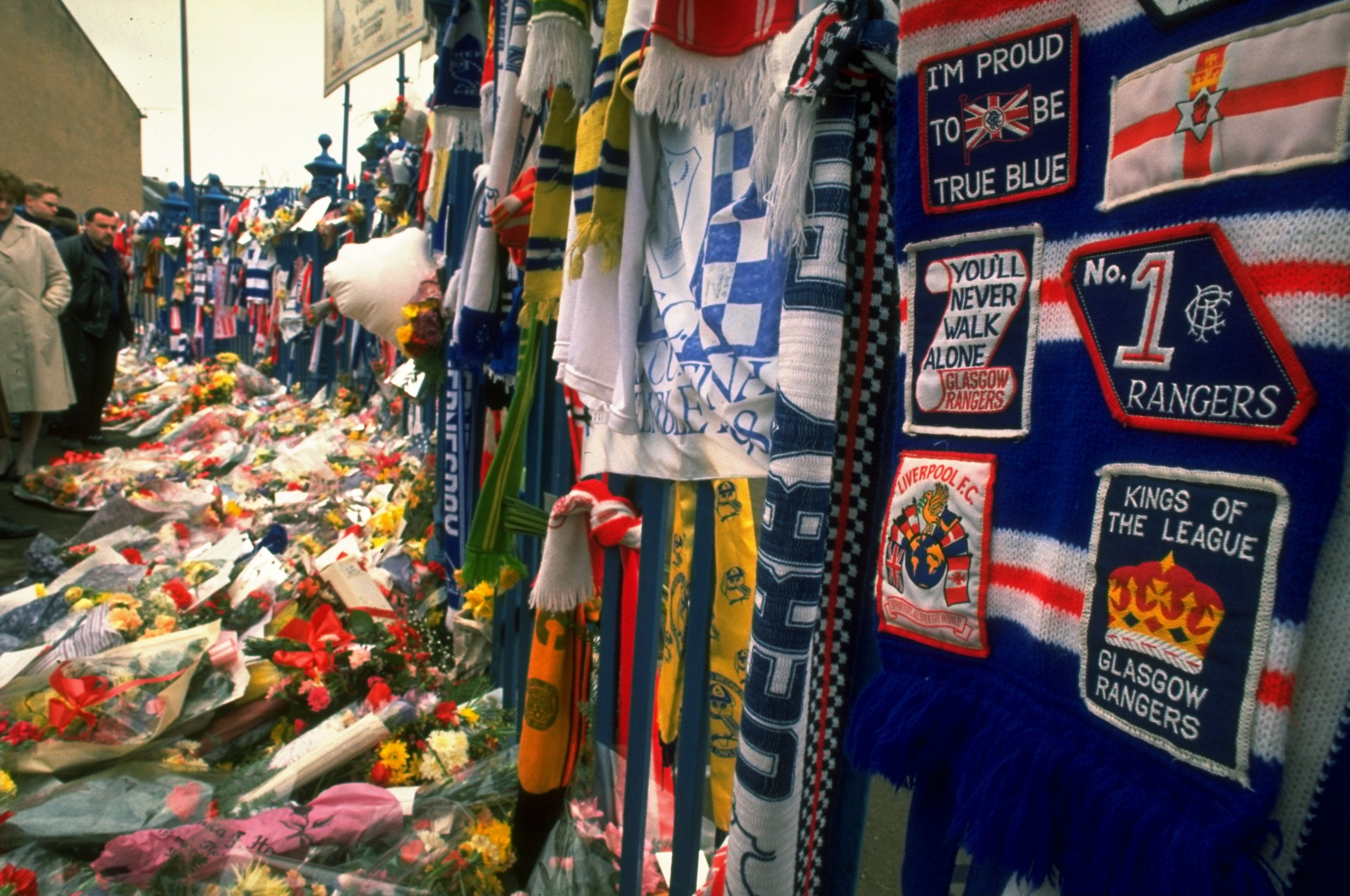
These dramas may also offer valuable lessons for other campaigning groups. Simon Heath, the executive producer on Anne, says, “I hope that Anne shows that if people come together and campaign against an injustice, they can achieve a positive outcome.
“It’s almost unprecedented in British legal history to have inquest verdicts overturned from accidental death to unlawful killing. That’s absolutely huge. It’s really important to recognise the credit that all those campaigners must take. It was a big victory.”
In a world where the news cycle moves on so quickly, these dramas also have a pivotal function in keeping miscarriages of justice in the public consciousness.
Heath, who has also executive-produced such popular crime dramas as Line of Duty, Bodyguard, Vigil, Save Me and The Pembrokeshire Murders, says, “if you talk to the victims’ families about Jimmy McGovern’s Hillsborough drama, they will say it put Hillsborough back on the news agenda after it had fallen off. That was really important.
“People get news fatigue, or they don't really know what took place. But hopefully through our film people will be drawn into the facts of the story and reminded what actually happened and that there were unlawful killing verdicts handed down. Drama can’t change the legal system, but I think it can put miscarriages of justice in the spotlight. What happens after that can be quite interesting.”

Another benefit of such dramas is the fact that they depict inspirational, ordinary people who have the courage to take on the system. Doreen and Neville Lawrence and Anne Williams epitomise that.
“Anne just felt like this extraordinary character,” says Heath. “She’s a woman from a very ordinary background, and she had no kind of legal background. She’d done a number of jobs and she brought up her family. Anne was absolutely driven by the injustice of the verdicts of accidental death that were handed down. And so this felt like a really worthwhile story to tell, both in terms of who she was and also who she represents.
“She shows that it’s not impossible to kick against the system and achieve results. The ordinary voice can still be heard, even in a world where it always feels like we’re being dominated from the top down. We live within a very flawed system, and there are going to be these miscarriages of justice. It’s just how we deal with them.”
When it comes to recounting injustices, such dramas often make more of an impact than a straight documentary. “Drama tells a story in a more potent way than a documentary,” says Redhead. “On a basic level, a drama commands a bigger audience, which is a clear plus. But on a wider level, what does a good drama do? It puts you in the middle of the story and brings it to life. You have an emotional dimension to it. It’s very compelling and you want the characters to succeed. The great sin is to make them worthy, gritty or doom-laden. You’ve got to hold the audience.”
Doreen and Neville had to trust us to look after their story, not to trash the memory of their son, not to do anything distasteful and not to cause them any more pain
These dramas also carry such weight because they have echoes in the numerous injustices that are unfortunately still occurring today. That’s why the filmmakers feel compelled to produce them.
Heath asserts that, “there is a wider story that includes Hillsborough. It’s still playing out with Grenfell. While we have yet to have public inquiries into the handling of Covid, people may be less accepting of what we’ve all had dealt to us. I think that’s what happened with Hillsborough.”
Stannard reinforces that idea, stressing that, “what we can do as human beings and as film makers is to tackle those issues. That’s why I do what I do. I always try to work on projects that in some way make some kind of difference to the way we feel and think about our lives. Speaking out about injustice is one of the most important things we can do.”
The producer says she feels very honoured to have been involved in making Anne. “Bishop James [Jones, the former Bishop of Liverpool, who was a great supporter of Anne’s] said to me, ‘it’s the most important thing you’ll ever do in your career.’ I feel privileged to have been able to help tell this story.
“I hope it does something to eradicate the great harm that was done by certain tabloid press in the aftermath of the event. I’m happy to have been part of getting the truth out there and helping correctly represent one of the greatest miscarriages of justice of our time.”
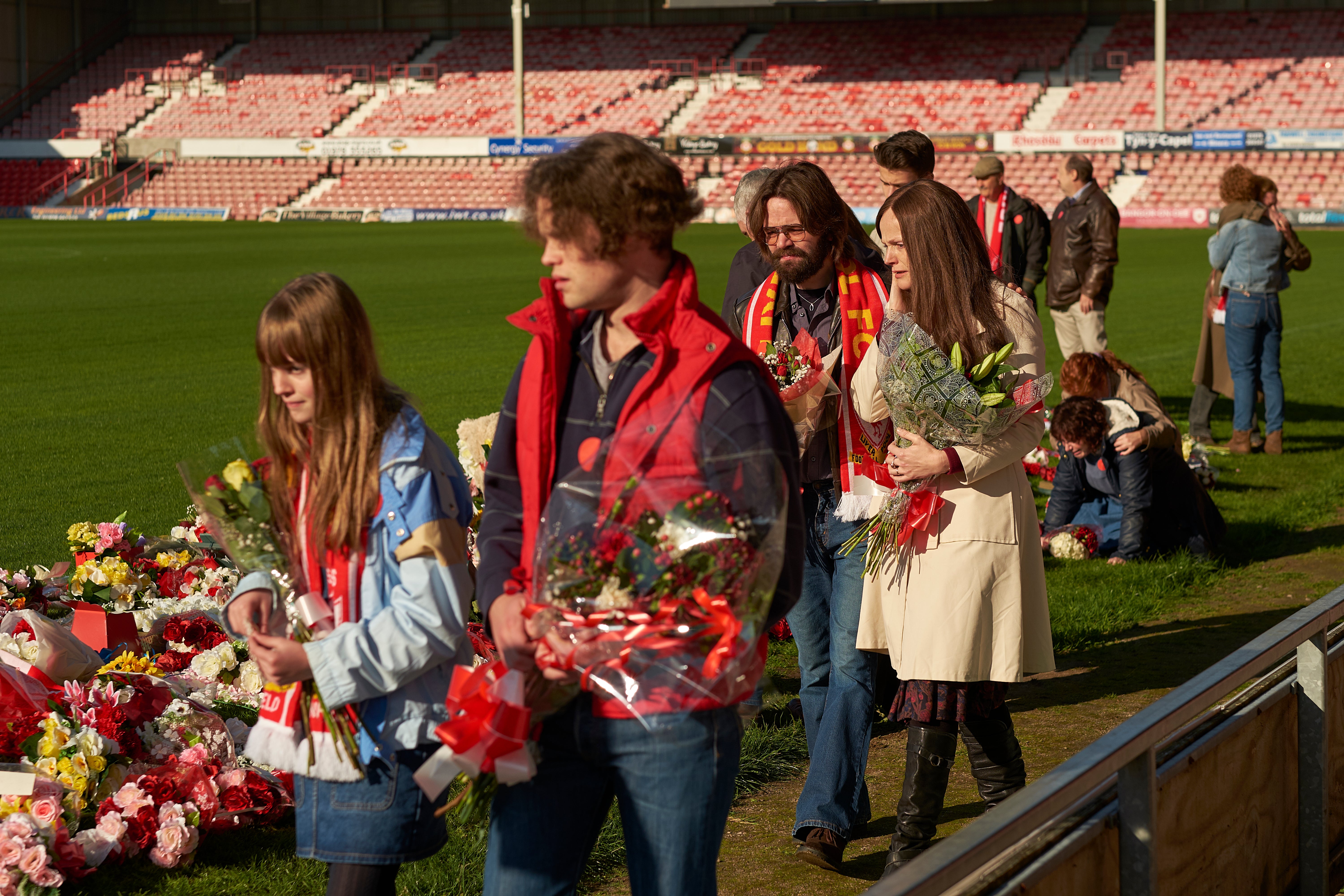
It is vital that these films continue to be made. “They are shining a light into dark places,” says Redhead. “The public needs to know about Bloody Sunday, Stephen Lawrence and all these other injustices. A healthy society isn’t afraid to look at itself in the mirror and see all its own warts, blemishes and ugliness.”
Above all, perhaps, these dramas furnish the victims of these injustices with an unrivalled opportunity to be heard. Stannard says she was very keen to tell the story of what she believes is probably the greatest injustice of recent years.
“The fact this terrible event happened and it was preventable – that’s the first tragedy,” she says. “And then the fact it was covered up so determinedly by the establishment, causing so much more grief and pain to people whose lives were already so broken – people need to know that. We can’t give the families justice. But we can give them a platform from which the truth can be told.”
Redhead agrees that the platform that filmmakers can provide for the victims’ families is absolutely crucial. “There is a tremendous bond of trust you have with the people whose stories you are telling.
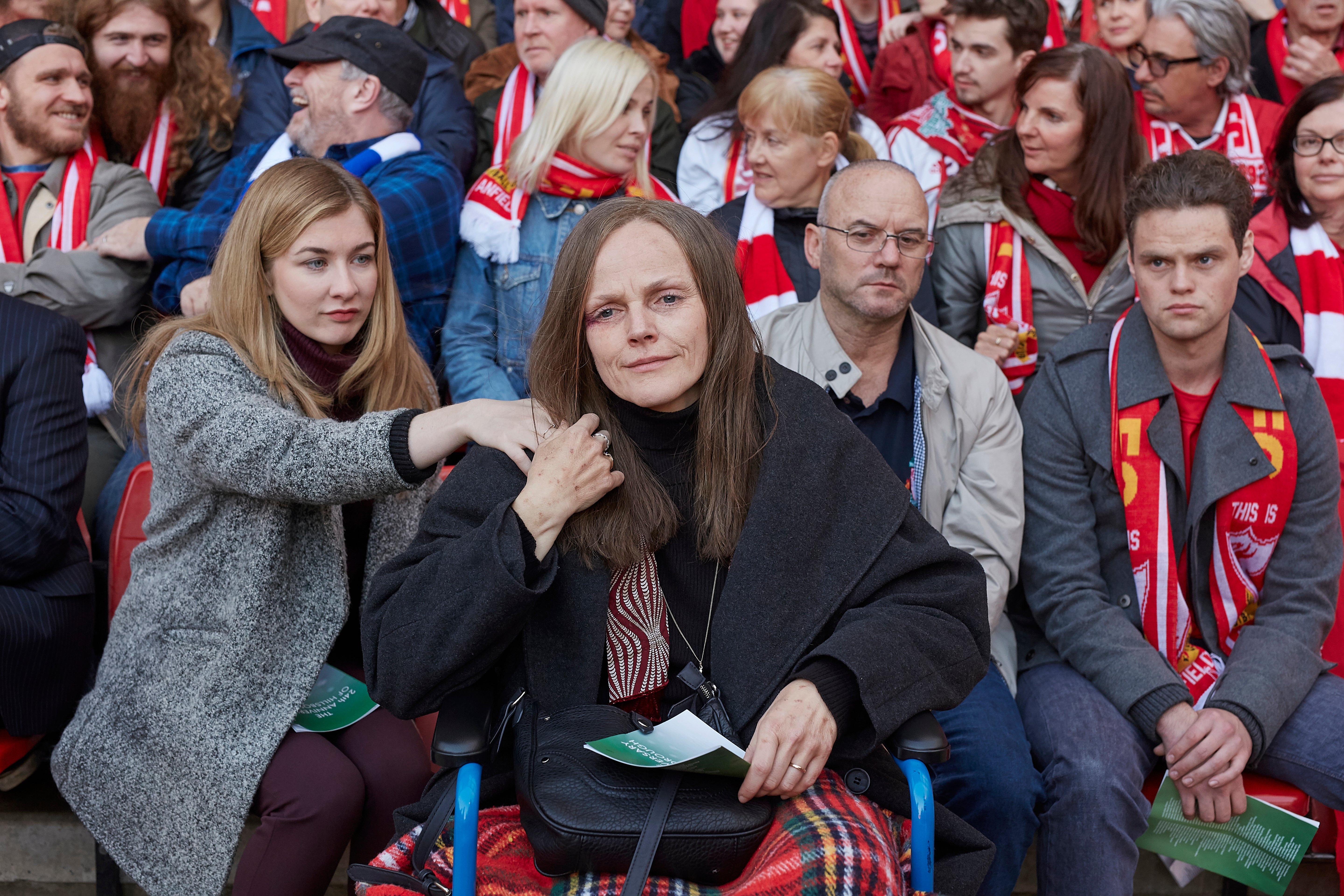
“Doreen and Neville had to trust us to look after their story, not to trash the memory of their son, not to do anything distasteful and not to cause them any more pain. That’s a very weighty responsibility. This is a story I care deeply about. I’ve known Neville and Doreen for more than 20 years. It’s a long-term relationship. It’s not like a normal production where you make the film and then walk away.”
He emphasises that, “it’s an immense privilege to have had the opportunity to contribute in a small way to the debate about equality. It’s the most important issue of our time. To have a chance on mainstream TV to have added to that debate is a rare and special honour.”
That’s not to say that making these dramas is ever easy. Redhead adds, “when we were making Stephen, there were times, frankly, when I thought, ‘why have I embarked on this? It’s so difficult. We’re doing it during Covid and missing so many actors’. But ultimately, you don’t want to let Doreen and Neville down.”
What do the Lawrences think of the drama, then? “They’re very happy with it. Neville has asked to speak to the producers and writers on Zoom to say how pleased he is with the drama. In the end, nothing else matters.”
‘Anne’ begins on ITV at 9pm on Sunday 2 January; ‘Stephen’ is available on ITV Player




Join our commenting forum
Join thought-provoking conversations, follow other Independent readers and see their replies
Comments